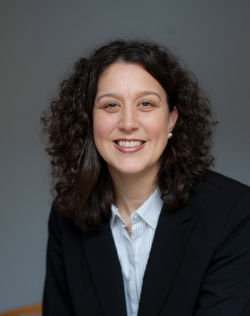Fall 2026
The application period for this program has passed.

Two Dartmouth undergraduates annually can register for an interdisciplinary range of classes at the American University of Kuwait (AUK) in Salmiya, Kuwait.
Sponsored by the Middle Eastern Studies department, the American University of Kuwait exchange is an interdisciplinary option for students from any academic background. This is Dartmouth's only off-campus, for-credit program in the Arabian Peninsula and so provides a unique opportunity to study in and experience a Muslim-majority country.
Every year 2 students are selected for this program. Students first apply through the Guarini Institute by the February 1st application deadline. After February 1st, the Dartmouth-AUK program will review applications and make acceptance decisions. Students will be notified of their acceptance decisions on March 1st.
Successful applicants who are accepted and commit to the program will receive a nomination from the Guarini Institute. Applying for an exchange program involves two steps: if you receive a nomination from the Guarini Institute you will also need to complete the host institution's application, which is administered and reviewed by the host institution. The host institution makes the final acceptance decision. The Guarini Institute will provide further instructions on this second step to students after they are accepted and commit to a program.
For more information about applying for this program, see our webpage on How to Apply & our FAQs under section 2 (How to Apply: Application), or contact the Guarini Institute.
 Kerry Laufer Deputy Director, Dartmouth-AUK Program
Kerry Laufer Deputy Director, Dartmouth-AUK Program Participants on this exchange enroll as full time students and choose from a wide range of available courses they are qualified for at AUK. Students normally enroll in three or four courses per semester. Students can transfer back courses to count toward their Dartmouth diploma.
Minimum cumulative grade-point average of 3.0.
**NOTE: If you are accepted to this exchange, you must be prepared to complete and submit all documents requested by AUK before June 1.
Going to Kuwait to study? Read these first: www.auk.edu.kw
For additional information, consult www.dartmouth.edu/aukproject.
Because AUK is not a residential university AUK assists Dartmouth students to locate suitable housing near its campus. This housing can range from furnished apartments or flats to hotel rooms within easy walking distance from campus. Apartments and flats are self-serviced, meaning that students prepare their own meals, though students can also make use of the many cafes and cafeterias on and near AUK's campus.
Students have high-speed internet access on campus; access at private accommodations is variable. In certain circumstances, students may have the opportunity to share accommodations with other Dartmouth students. Housing costs are roughly equal to Hanover costs and sometimes lower.
We encourage students to engage with their SAS advisors and program faculty/staff during the exploratory, pre-application phase to discuss how disability-related accommodations and access needs can be supported in an off-campus environment. If you currently have approved accommodations at Hanover, SAS will review them to determine which can be provided at your off-campus location and what alternatives may be needed. On-campus and off-campus accommodations may differ depending on each program location's resources and accessibility features. We recommend beginning this discussion with SAS as soon as you are accepted and no later than at least one whole quarter before your program start date.
For next steps, review the Off-Campus Program Accommodations page on the SAS website.
Dartmouth students pay tuition and service fees to Dartmouth; room and board fees as well as transportation to and from the program site are the responsibility of the student. Because the exchange is an official program sponsored by the College, Dartmouth students do not need to pay the transfer term fee that the College charges to students who study on outside programs during leave terms.
In order that all qualified Dartmouth undergraduate students may have the opportunity to take part in off-campus programs, the College endeavors to adjust its normal financial aid awards for students already receiving aid. Tuition and expected family contribution for Dartmouth's off-campus programs are the same as for an on-campus term.
All costs, including airfare and spending money, are considered when determining the cost of an off-campus program. Any costs in excess of a typical term in Hanover are met with additional Dartmouth Scholarship Funds. If you have a work expectation for the term, this will be replaced by scholarship funding.
Students are responsible for purchasing their own plane ticket and, in many cases, meals. Often this means that part of the expected family contribution is used towards these costs rather than for tuition. For help sorting out who pays what and how, contacting the Financial Aid office is often advisable.
Financing your program | Financial Aid | Scholarships | Budgeting & Costs
 Kerry Laufer Deputy Director, Dartmouth-AUK Program
Kerry Laufer Deputy Director, Dartmouth-AUK Program  TBD
TBD